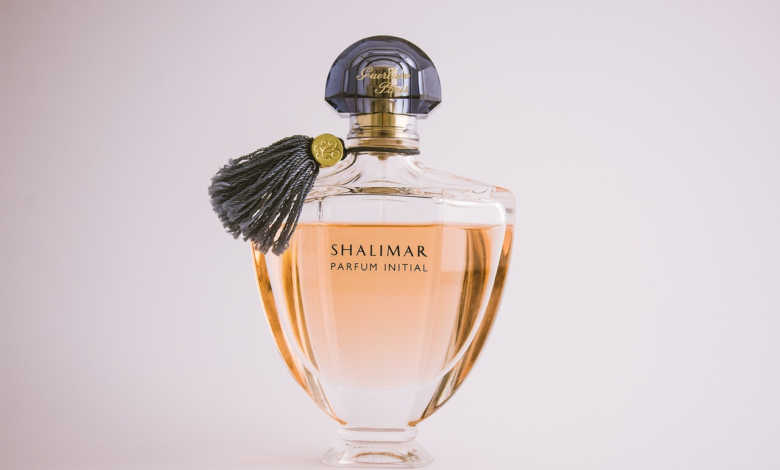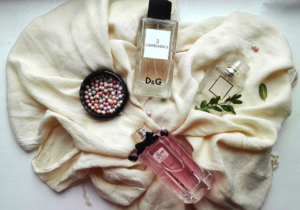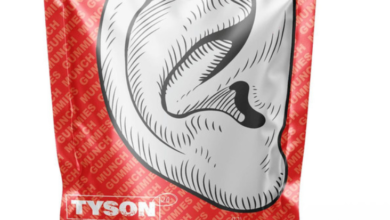Exploring Exotic Blends: Arabic Perfume Unveiled

Arabic perfume, with its enigmatic and alluring scents, has been captivating the senses of individuals around the world for centuries. In this olfactory journey, we will delve into the intriguing world of exotic blends that define Arabic perfumery, from the exquisite fragrances designed for women to the growing trend of alcohol-free perfumes and the allure of Arabian perfume oils.
The Enchantment of Arabic Perfume for Women
Arabic perfume for women is a celebration of femininity and elegance, with a wide array of fragrances that cater to every taste and preference. These fragrances are meticulously crafted to embody the essence of beauty and allure. Let’s explore this enchanting world:
- Floral Fantasies: Arabic perfumers are renowned for their skill in capturing the essence of flowers in their fragrances. Rose, jasmine, and lily are some of the beloved floral notes that grace Arabic perfumes, creating a symphony of beauty.
- Oriental Opulence: Many Arabic perfumes for women fall into the category of oriental fragrances, known for their warmth and sensuality. Notes of amber, vanilla, and exotic spices infuse these perfumes with an opulent and captivating aura.
- Timeless Elegance: Arabic perfumes often exude an air of timelessness. They are designed to linger on the skin, evolving gracefully throughout the day, leaving an indelible mark of elegance.
The Rise of Alcohol-Free Perfumes
In recent years, there has been a growing interest in alcohol-free perfume. This trend aligns with a broader movement towards cleaner and more sustainable beauty products. Here’s why these perfumes are gaining popularity:
- Sensitivity-Friendly: Alcohol can be harsh on the skin and may cause irritation or dryness. non alcoholic perfume is a gentler option, making them suitable for individuals with sensitive skin.
- Longevity: Alcohol-free perfumes tend to have longer staying power on the skin, as they don’t evaporate as quickly as alcohol-based ones. This ensures that you enjoy the fragrance throughout the day.
- Eco-Conscious Choice: Many consumers are opting for alcohol-free perfumes due to their eco-friendliness. They have a lower environmental impact and are often packaged in recyclable materials.
Arabian Perfume Oils: Liquid Gold

Arabian perfume oil, often referred to as attar or it, is a treasured form of fragrance in Arabic perfumery. These oils are highly concentrated and are considered liquid gold in the world of perfumery. Let’s uncover the allure of these precious oils:
- Natural Essence: Arabian perfume oils are derived from natural ingredients such as flowers, spices, and wood. This purity and authenticity contribute to their exquisite scents.
- Long-Lasting: Due to their concentration, a small amount of Arabian perfume oil goes a long way. A single drop can provide hours of fragrant enjoyment.
- Personalized Fragrance: Many individuals in the Middle East prefer to wear Arabian perfume oils as they interact with the skin’s chemistry, creating a unique and personalized scent.
Statistics and Facts About Arabic Perfume
As we immerse ourselves in the world of Arabic perfume, let’s take a look at some interesting statistics and facts:
- Global Influence: Arabic perfumery has a significant global influence. It is estimated that the Middle East accounts for approximately 18% of the global fragrance market.
- Historical Legacy: Arabic perfumery has a rich history dating back over a thousand years. The renowned “Book of Perfume,” written by the 9th-century Arab scientist Al-Kindi, is one of the earliest known texts on perfumery.
- Sustainability Matters: Many Arabic perfume brands are embracing sustainable practices. They are increasingly using ethically sourced ingredients and environmentally friendly packaging.
The Artistry of Arabic Perfume: Crafting Fragrance Masterpieces

As we continue our fragrant odyssey through the world of Arabic perfume, we delve deeper into the artistry and craftsmanship that underlie these aromatic wonders. Arabic perfumers are true artists, meticulously blending a symphony of scents to create fragrance masterpieces that resonate with culture, tradition, and individuality.
The Perfumer’s Palette: A Symphony of Ingredients
Creating Arabic perfumes is akin to composing a symphony, with each fragrance note playing a unique role in the olfactory experience. Let’s explore the exquisite ingredients that grace the perfumer’s palette:
- Precious Oud: Oud, also known as agarwood, is often considered the crown jewel of Arabic perfumery. This resinous wood is treasured for its rich, woody, and slightly smoky aroma. Obtained from infected agarwood trees, oud adds depth and complexity to many Arabic fragrances.
- Enchanting Attar: Attar, or itr, is a fragrant oil derived from botanical sources. Rose attar, in particular, is highly esteemed in Arabic perfumery. The extraction process involves steam distillation, capturing the essence of roses in every drop. Attar contributes a natural and long-lasting aroma to Arabic perfumes.
- Aromatic Spices: Arabic perfumers often incorporate a blend of spices such as saffron, cardamom, and cinnamon into their creations. These spices infuse fragrances with warmth and vibrancy, evoking the spice markets of the Middle East.
- Sensual Ambergris: Ambergris, a waxy substance derived from the digestive secretions of sperm whales, is a rare and precious ingredient. It is highly prized for its ability to fix and enhance fragrance notes, resulting in a scent that lingers gracefully on the skin.
- Floral Bouquets: Arabic perfumes are known for their lavish use of floral notes. Rose, jasmine, and orange blossom are among the favorites. Each flower contributes its unique character, from the opulence of roses to the seductive allure of jasmine.
The Perfumer’s Craft: Blending and Layering
Crafting an Arabic perfume is a complex and nuanced process that involves blending and layering various fragrance notes. The perfumer’s goal is to create a harmonious composition that unfolds over time, revealing different facets of the fragrance.
- Top Notes: These are the initial scents that you perceive when you apply a perfume. They are often light and refreshing, designed to grab your attention. Citrus fruits like bergamot and lemon are common top notes in Arabic perfumery.
- Heart Notes: Also known as middle notes, these scents emerge once the top notes dissipate. Floral and spicy notes typically make up the heart of Arabic perfumes. They provide depth and complexity to the fragrance.
- Base Notes: Base notes are the foundation of a perfume and tend to linger the longest. Resinous and woody ingredients like oud, amber, and sandalwood are often used as base notes in Arabic perfumes. They give the fragrance its longevity and depth.
Customized Fragrances: A Personal Journey
Arabic perfumery celebrates the individuality of fragrance wearers. Many perfume houses offer customization services, allowing customers to create their signature scents. This personalized approach adds a layer of exclusivity and luxury to the world of Arabic perfume.
- Scent Profiling: Perfumers work closely with customers to understand their scent preferences and personalities. This profiling helps in selecting the most suitable ingredients for a personalized fragrance.
- Unique Formulations: Each customized fragrance is a unique formulation, carefully crafted to align with the client’s desires. These bespoke creations can include rare and limited-edition ingredients, making them truly one-of-a-kind.
- Artisanal Packaging: The presentation of customized Arabic perfumes is as important as the scent itself. Perfume houses often provide exquisite packaging options, complete with personalized labels and packaging designs.
Statistics and Trends in Arabic Perfume
Let’s delve into some intriguing statistics and trends that shed light on the world of Arabic perfume:
- Growing Global Demand: The demand for Arabic perfumes is on the rise, not only in the Middle East but also in international markets. In recent years, Arabic perfume brands have expanded their reach to cater to a global audience.
- Sustainable Practices: Sustainability is a growing concern in the fragrance industry. Many Arabic perfume houses are adopting sustainable practices, including responsible sourcing of ingredients and eco-friendly packaging.
- Digital Fragrance Exploration: The digital age has transformed the way people explore and purchase fragrances. Online fragrance profiling and sampling services have become popular, allowing customers to discover Arabic perfumes from the comfort of their homes.
Conclusion
Arabic perfume is a captivating world of fragrance that continues to evolve and enchant. Whether you’re drawn to the exquisite blends designed for women, the trend of alcohol-free perfumes, or the timeless allure of Arabian perfume oils, there is something in Arabic perfumery to entice every scent enthusiast.
With its rich history, cultural significance, and commitment to quality, Arabic perfume is a fragrant journey that promises to delight the senses and transport you to a world of olfactory wonders.
Author Bio:

Sayed Sayeedur Rahman is a professional digital marketer, SEO specialist, and content writer. He’s a certified professional with extensive professional experience working with USA and UK-based companies to grow their businesses. He’s the Co-Founder of TechLookBD digital marketing agency.




